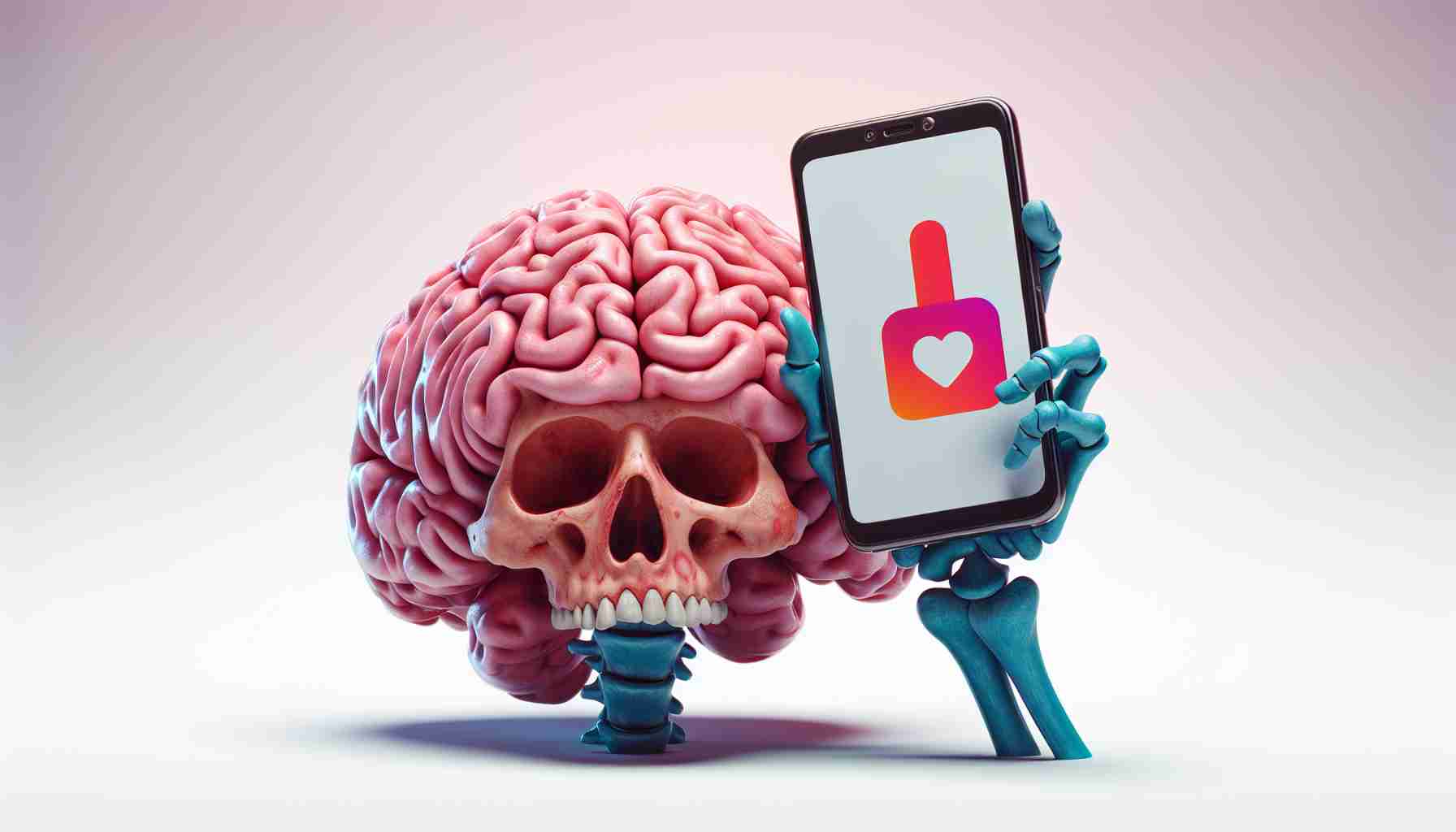Smartphone addiction is reshaping the way we communicate, with a new term emerging from the depths of social media platforms: “brain rot.” This label has been given to a state of mind where individuals frequently lean on internet slang and memes in everyday conversations—symptomatic of too much screen time. According to a popular TikTok video, “brain rot” indicates a person’s tendency to pull references from the online world into real-world dialogue, a concept that has gained traction among users.
As we navigate the digital age, smartphone addiction statistics are alarming, with a notable number of young individuals unable to detach from their devices. The phenomenon was highlighted in a viral TikTok uploaded by Joel Cave, which gathered a broad audience’s attention. Cave pointed out that overexposure to social media platforms like TikTok could lead to a reduced ability to engage in face-to-face interactions without dropping internet catchphrases and references.
The trend of quoting social media content signals a profound impact on how people interact, reflecting a shift in conversational norms. While smartphones deliver a hit of dopamine with every scroll, prior studies have suggested these habits could have undesirable effects. Not only does this behavior undermine social values, but it can also enhance feelings of isolation by presenting the illusion of connectivity and answers to life’s complex problems. This paradoxical effect exemplifies the duality of our digital engagements—providing both solace and the potential for a silent cognitive decline.
The concept of “brain rot” has not been formally recognized by the scientific community, and there is ongoing debate regarding its legitimacy as a clinical issue. However, the concerns it raises about excessive social media use and potential cognitive consequences are reflective of a broader discussion on mental health and technology.
Key Questions and Answers:
– What is “brain rot”? “Brain rot” is a colloquial term used to describe a perceived decline in cognitive abilities or conversational quality due to heavy reliance on internet culture and social media platforms, such as TikTok.
– Is “brain rot” a medically recognized condition? As of now, “brain rot” is not recognized as a medical condition. It is a term born out of social observation and not grounded in scientific research.
– How does excessive use of platforms like TikTok potentially impact mental health? Excessive TikTok usage can lead to reduced attention spans, poor sleep quality, increased anxiety, and depression due to constant comparison with others and the addictive design of social media.
Key Challenges or Controversies:
– Evidence and Recognition: The lack of clinical evidence and formal recognition makes it challenging to validate and measure the impact of “brain rot.”
– Mental Health Stigma: Ascribing mental health issues to social media use can contribute to stigma, potentially discouraging individuals from seeking help.
– Balance between Use and Abuse: Finding a balance between beneficial aspects of social media, such as community building, and its overuse or addiction remains controversial.
Advantages and Disadvantages:
– Advantages: Social media platforms like TikTok can offer educational content, a sense of community, and a platform for creativity and self-expression.
– Disadvantages: On the downside, excessive usage can lead to addiction, procrastination, exposure to inappropriate content, and potential degradation of social skills and face-to-face interaction capabilities.
For further reading on this topic, you can visit the following links:
– American Psychiatric Association for insights on emerging mental health issues: www.psychiatry.org
– World Health Organization for information on the impact of screen time and mental health: www.who.int
The concept of “brain rot” touches on the broader implications of digital technology on cognitive and social skills. While further research is needed, the growing dependence on smartphones and social media is an undeniable aspect of modern life with complex effects that merit careful consideration.
The source of the article is from the blog smartphonemagazine.nl
